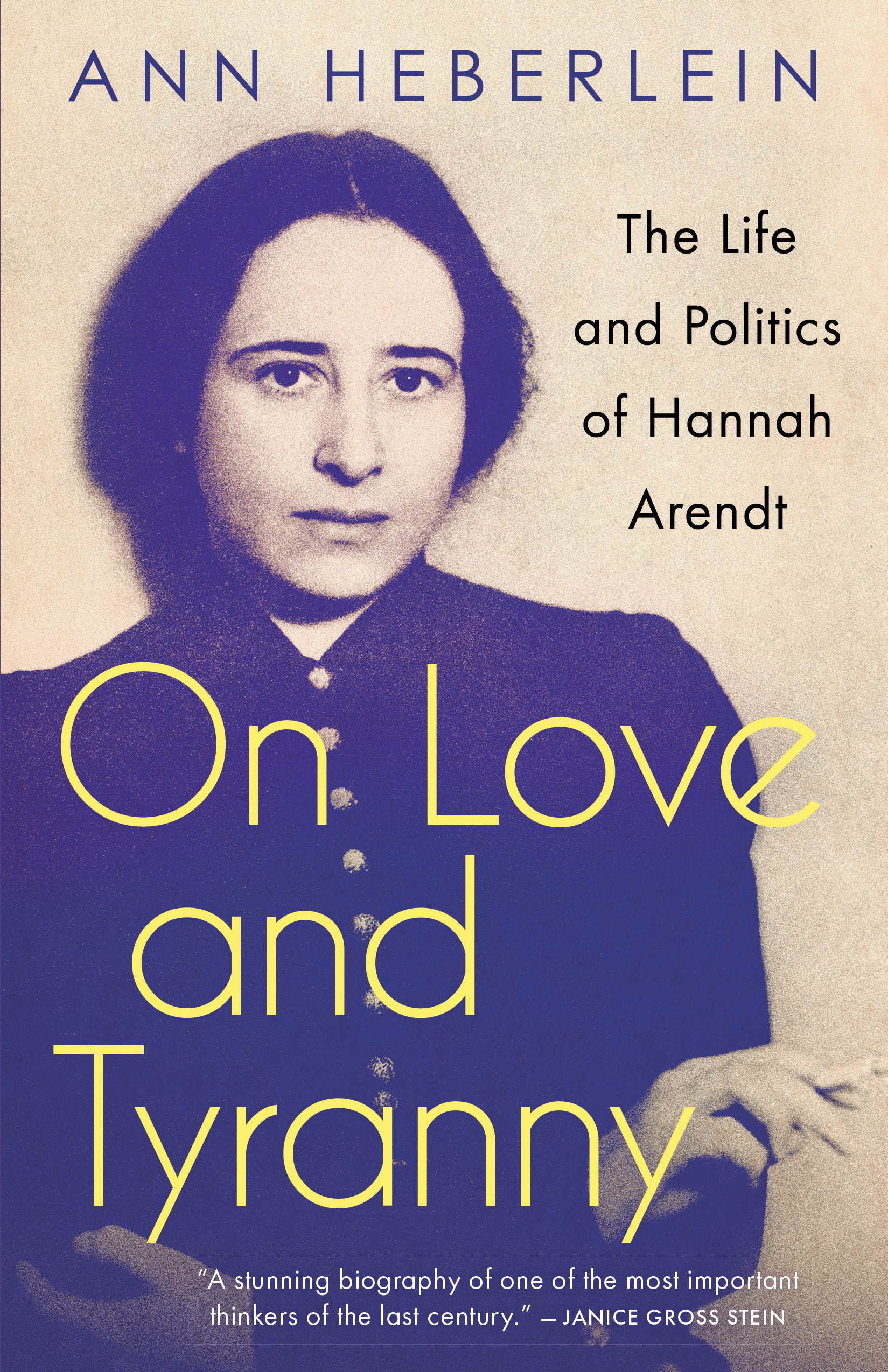
On Love and Tyranny : The Life and Politics of Hannah Arendt
In an utterly unique approach to biography, On Love and Tyranny On Love and Tyranny brings to life a Hannah Arendt for our days, a timeless intellectual whose investigations into the nature of evil and of love are eerily and urgently relevant half a century later.
Browse Related Items
| Genre |
| Electronic books. |
- ISBN: 9781487008123
- Physical Description 1 online resource 272 pages
- Publisher [Place of publication not identified] : House of Anansi Press Inc, 2021.
Content descriptions
| General Note: | Electronic book. GMD: electronic resource. |
| Reproduction Note: | Electronic reproduction. [S.l.] House of Anansi Press Inc 2021 Available via World Wide Web. |
| System Details Note: | Format: Adobe EPUB Requires: cloudLibrary (file size: 1.1 MB) |
Additional Information

On Love and Tyranny : The Life and Politics of Hannah Arendt
Click an element below to view details:
Excerpt
On Love and Tyranny : The Life and Politics of Hannah Arendt
In Hannah's Denktagebuch, her intellectual diary, there is a reflection on love and evil. Taking the concept of amor mundi as her starting point, she muses on the difficulty of loving the world. Why is it so hard, and why must we love the world? The love Hannah discusses here is not love in the conventional sense. To love the world means reconciling oneself with it, in all its imperfection and weakness -- because this reconciliation is necessary for its continued existence. For Hannah Arendt, it was a case of "understanding and accepting what really happened." How could anyone love the world after the Holocaust? In what world is something like the Holocaust even possible? Hannah links love for the world, amor mundi, to responsibility, reflection, and judgement. A love that presupposes reflection over one's own actions and an understanding of their consequences. In this approach, there are parallels to her thoughts on evil. Indifference can, according to Hannah, be fertile ground for evil, and the opposite of indifference is reflection. As a result, everyone has a responsibility to reflect on their own actions, a responsibility to choose, a responsibility not to simply obey orders and follow the crowd. Yet the argument Hannah would come to call the banality of evil aroused strong disgust and anger in many of her contemporaries. Hannah's description of Adolf Eichmann, one of the architects of the Holocaust, as an unimaginative bureaucrat who was simply doing his job shocked the world. Critics saw Hannah's argument as a diminishment of Eichmann's guilt, and the book was slated everywhere. Friends and colleagues turned their backs on her. In an infamous interview with Günter Gaus on West German TV, just after the publication of Eichmann in Jerusalem: A Report on the Banality of Evil (1964), Hannah is asked whether she wishes she had never written the book. Does she believe that, despite all the negative reactions -- all the hate -- she did the right thing by writing the book the way she did? Hannah, a middle-aged woman by the time of the interview, listens to Gaus's question with a frown. She is wearing a dark dress, and her once-black hair, though thick as ever, is flecked with grey. She has one leg nonchalantly crossed over the other, her dark eyes guarded yet alert, and she is holding a cigarette in one hand. Gaus, clean shaven in a white shirt and thick rimmed glasses, seems almost breathless as he waits for her reply. Hannah leans back in her armchair, studies Gaus intently, and takes a deep drag on her cigarette before she speaks. Her answer paraphrases Holy Roman Emperor Ferdinand I's motto, fiat iustitia, et pereat mundus: fiat veritas, et pereat mundus -- let truth be done, though the world may perish. She raises her free hand and points at Gaus, as though to stress the importance of her words: "The truth must be told, regardless of the consequences of that truth." A worthy motto for someone who put their life on the line on more than one occasion in their steadfast belief in what is true and right. Excerpted from On Love and Tyranny: The Life and Politics of Hannah Arendt by Ann Heberlein All rights reserved by the original copyright owners. Excerpts are provided for display purposes only and may not be reproduced, reprinted or distributed without the written permission of the publisher.


